40 statics free body diagram examples
Figure 5.32 (a) The free-body diagram for isolated object A. (b) The free-body diagram for isolated object B. Comparing the two drawings, we see that friction acts in the opposite direction in the two figures. Because object A experiences a force that tends to pull it to the right, friction must act to the left. Because object B experiences a component of its weight that pulls it to the left ... 15. How to draw good free-body diagrams (FBDs) 16. Why is the tension the same everywhere in a rope 17. How to calculate forces of three ropes pulling in different directions 18. Using symmetry in statics problems 19. How to find the mass pulling on a spring when given the deflection 20. How to find the force exerted by a spring 21.
Set up a free-body diagram for the object. (a) Choose the xy-reference frame for the problem. Draw a free-body diagram for the object, including only the forces that act on it. When suitable, represent the forces in terms of their components in the chosen reference frame.
Statics free body diagram examples
FREE-BODY DIAGRAMS (Section 5.2) 1. Draw an outlined shape. Imagine the body to be isolated or cut “free” from its constraints and draw its outlined shape. 2. Show all the external forces and couple moments. These typically include: a) applied loads, b) the weight of the body, and c) support reactions (can be difficult). C2.1 Free-Body Diagram (FBD) and Supports Free-Body Diagram (FBD) In your much dreaded class test, the first question requires you to identify all forces acting on a person who is standing. Whew, pretty easy - it must be just the person's weight (gravitational force). Example 8 : A system with two blocks, an inclined plane and a pulley. A) free body diagram for block m 1 (left of figure below) 1) The weight W1 exerted by the earth on the box. 2) The normal force N. 3) The force of friction Fk. 4) The tension force T exerted by the string on the block m1. B) free body diagram of block m 2 (right of figure below)
Statics free body diagram examples. Example 1: The purpose of this example is to demonstrate the drawing of a free-body diagram in a step-by-step fashion. The focus is on beam ABC. Step 1: Separate beam ABC from the rest of the system and represent it by a simple sketch. In our free-body diagrams, each reaction force or torque is denoted with a single index for convenience. For example, F 1 and T 2. The correct direction for these components will be determined through an analysis. Pin-sliding joint Two links connected by a pin-sliding joint apply reaction forces on each other. On the free-body diagrams A free-body diagram of Joint B THE METHOD OF JOINTS (Section 6.2) Statics, Fourteenth Edition ... EXAMPLE Given:The frame supports an external load and moment as shown. Find: The horizontal and vertical ... Hibbeler Statics 14th Edition are identified and the correct free-body diagram is selected for analysis. Three examples involving equilibrium of particles (2D and 3D) and equilibrium of rigid bodies (2D) are presented in the paper along with a comparison between the exploded-view approach and the methods employed by the authors of two different Statics textbooks.
Figure2:Acantileveredbeam. Free-body diagrams Asasimplestartingexample,considerabeamclamped(\cantilevered")atoneendandsub-jectedtoaloadPatthefreeendasshowninFig.2 ... Forces Statics and FBD's Intro 6th.notebook 2 November 08, 2016 Objectives: •Students will understand what a force is and what forces can do •Students will understand what is meant by static equilibrium •Students will be able to correctly draw Free Body Diagrams This is a statics and dynamics text for second or third year engineering students with an emphasis on vectors, free body diagrams, the basic momentum balance principles, and the utility of computation. Students often start a course like this thinking of mechanics reasoning as being vague and complicated. Our aim is to replace this Engineering Mechanics: Statics: Free Body Diagram A body is a physical object; it can be anything from a building, car, bolt, or even a piece of another body for example, a piece of a cable or any other structures.. To analyze the forces on a body and their effects, one technique is to imaginarily isolate the body from its surroundings, i.e. other bodies.
Free-Body Diagram of a Rigid Body: Free-body diagrams play a crucial role in the statics of rigid bodies. A free-body diagram is a road map that enables one to identify all the unknown loads (forces and moments) prior to the formulation and solution of equilibrium equations. Steps. 1) Draw a simplified version of the object. 2) Establish a coordinate system for that object and the forces involved. 3) Draw and label the known and unknown forces acting on the object. This includes replacing things that are in contact with forces. Statics Free body diagram. 1. Free body diagram FBD<. In solving problems in Mechanics, mainly in Statics, the important step is to draw the free body diagram FBD . The free body diagram is a material point or a particle that represents an object of interest to study. It is located in the origin of a coordinate system. directly on the diagram. Pertinent dimensions may also be represented for convenience. Note, however, that the free-body diagram serves the purpose of focusing accurate attention on the action of the external forces; therefore, the diagram should not be cluttered with excessive information. Force arrows
An educational video from Actus Potentia. Free Body Diagram, frames, basic principles, thumb rules, examples.
https://goo.gl/ICIenR for more FREE video tutorials covering Engineering Mechanics (Statics & Dynamics)This video represents a comprehensive example of solvi...
Drawing Free-Body Diagrams. Free-body diagrams are diagrams used to show the relative magnitude and direction of all forces acting upon an object in a given situation. A free-body diagram is a special example of the vector diagrams that were discussed in an earlier unit. These diagrams will be used throughout our study of physics.
1. Draw Free Body Diagram 2. Apply Equilibrium Example: Cantilevered Flag Figure M4.3-8 Geometry and free body diagram of cantilevered flag z x ~ ~ ~ • x z m = mass/unit length mg H A V A M A f f L L FREE BODY DIAGRAM:
Free Body Diagram Example : A Free-body diagram (FBD) is an essential tool when the forces on an object need to be determined using equilibrium equations. They help focus attention on the object of interest in order to determine the forces acting on it. Creating FBD's is a straightforward process: Identify the object that will be isolated.
Free-Body Diagram Procedure to draw free body diagram: • Select the extent of the free-body and detach it from the ground and all other bodies. • Indicate point of application, magnitude, and direction of external forces, including the rigid body weight. • Indicate point of application and assumed direction of unknown applied forces. These
Statics (MET 2214) Example 1 The sphere has a mass of 6 kg and is supported as shown. Draw a free-body diagram of the sphere, cord CEsphere, cord CE, and the knot at C.the knot at C. 17. Statics (MET 2214) Sphere There are two forces acting on the sphere. These are its weight and the force of cord CE.
Summary. This video consists of four sections: a brief refresher on the method for drawing free body diagrams, examples of free body diagrams with an opportunity to practice, examples of situations in which diagrams have been drawn incorrectly (and corrections for them), a final segment that draws connections between free body diagrams and the physical situations they describe.
MEM202 Engineering Mechanics - Statics MEM 7.2 Plane Trusses Method of Joints 1. Draw a free-body diagram of the entire structure and determine the reactions (if r = 3). 2. Draw free-body diagrams for all members (assume tensile forces in all members) and all joints. 3. Set up the equilibrium equations for each joint and
Engineering Statics uses algebra and trigonometry and is suitable for use with either calculus- or non-calculus-based academic statics courses. Completion of a beginning physics course is helpful for success in statics, but not required as all the key concepts are included in this course. Topics Covered: Forces; Free Body Diagrams
A free-body diagram for this situation looks like this: 4. A skydiver is descending at a constant velocity. Considering the air resistance, the free body diagram for this situation would like the following: Free Body Diagram Solved Problem. Example: Draw a free body diagram of three blocks placed one over the other as shown in the figure. Solution:
As with all statics problem, a free-body diagram will assist in solving the problem. In this example, all forces acting on the elevator cabin is first analyzed. The 5000 lb weight is divided evenly between the cables due to symmetry. Consequently the force of each cable will be. P = 5000 / 2 = 2,500 lb.
Pulleys and Tension ProblemSum of Forces in Inclined Frames of ReferencePulleys, Tension, and Extension SpringsForces Subscripts ConvectionTwo-Force Members...
Statics is the physics that treats objects at rest or objects in constant motion. ... • Construct free-body diagram. • Sum forces and set to zero: Review: Free-body Diagrams • Read problem; draw and label sketch. ... Example 4: Find the tension in the rope and the force by the wall on the boom. The 10-m
Free Body Diagram Examples. Given that there several options for representing reaction forces and couple-moments from a support, there are different, equally valid options for drawing free-body diagrams. With experience you will learn which representation to choose to simplify the equilibrium calculations.
Example 8 : A system with two blocks, an inclined plane and a pulley. A) free body diagram for block m 1 (left of figure below) 1) The weight W1 exerted by the earth on the box. 2) The normal force N. 3) The force of friction Fk. 4) The tension force T exerted by the string on the block m1. B) free body diagram of block m 2 (right of figure below)
C2.1 Free-Body Diagram (FBD) and Supports Free-Body Diagram (FBD) In your much dreaded class test, the first question requires you to identify all forces acting on a person who is standing. Whew, pretty easy - it must be just the person's weight (gravitational force).
FREE-BODY DIAGRAMS (Section 5.2) 1. Draw an outlined shape. Imagine the body to be isolated or cut “free” from its constraints and draw its outlined shape. 2. Show all the external forces and couple moments. These typically include: a) applied loads, b) the weight of the body, and c) support reactions (can be difficult).
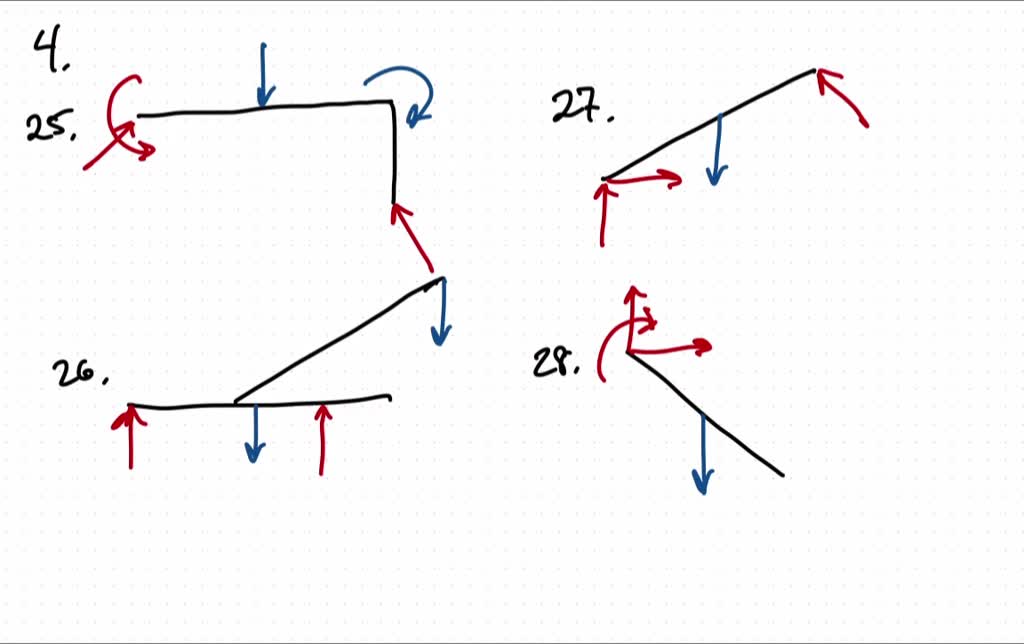
Solved Draw The Free Body Diagram For The Following Problems A The Beam In Prob 5 25 B The Crane And Boom In Prob 5 26 C The Bar In Prob 5 27 D The Rod In

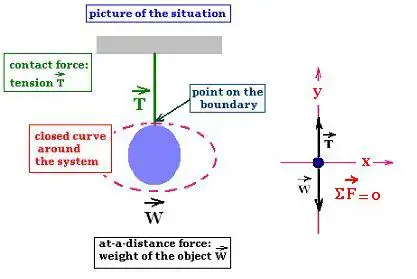

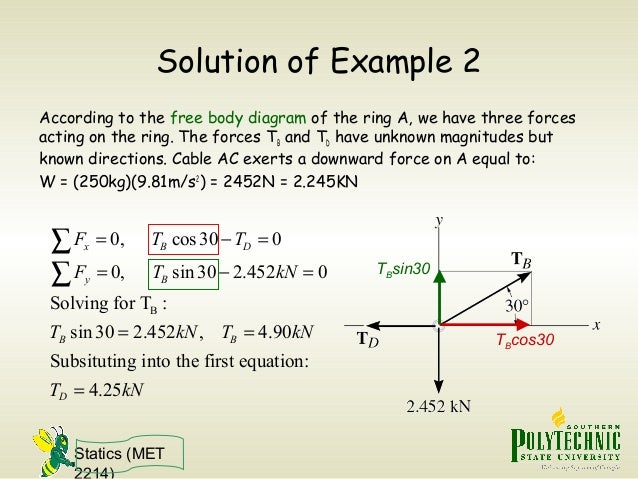

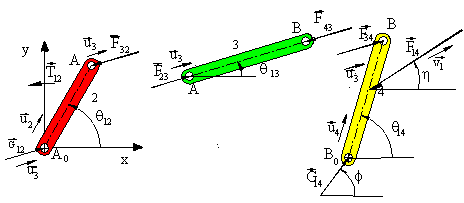

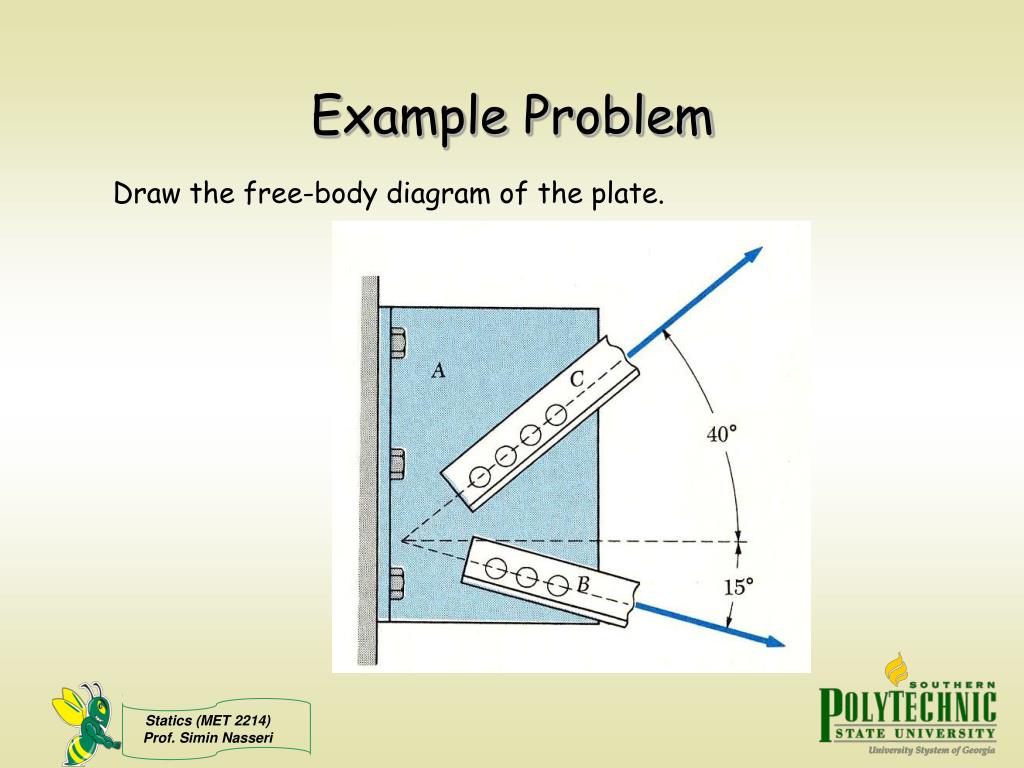


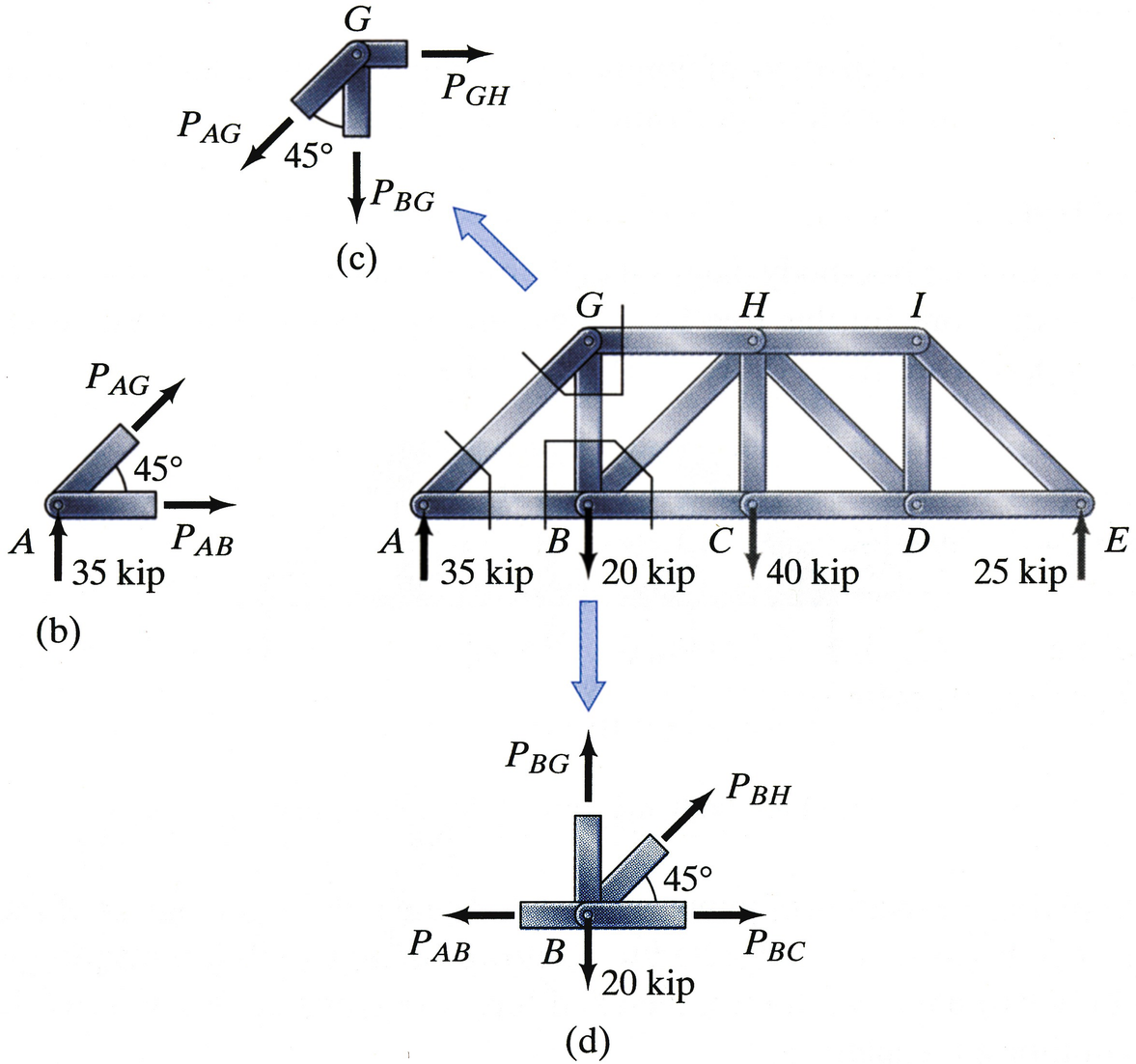
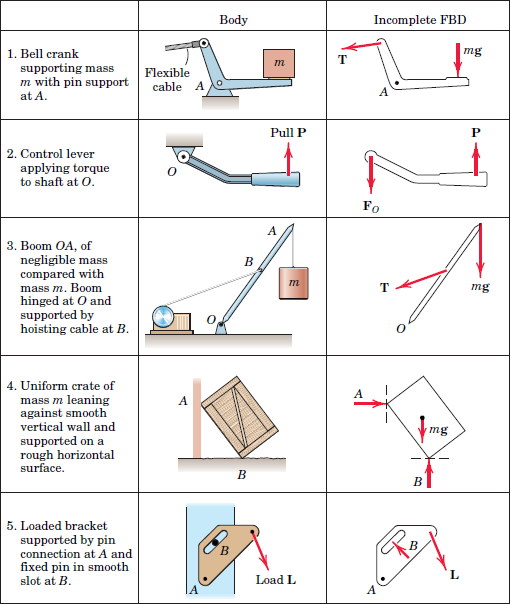

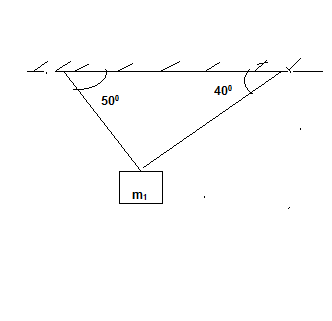
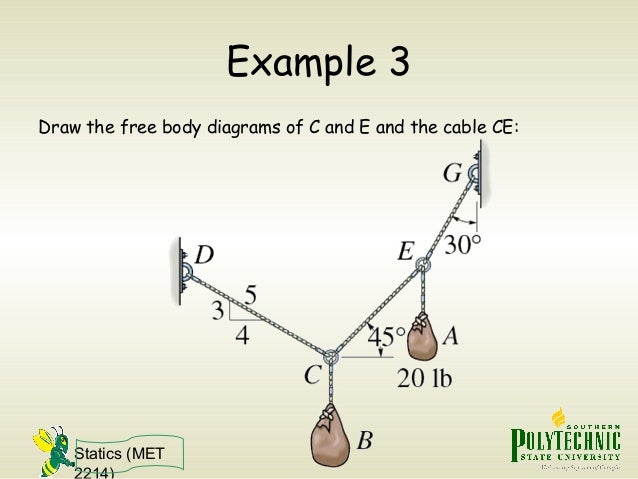

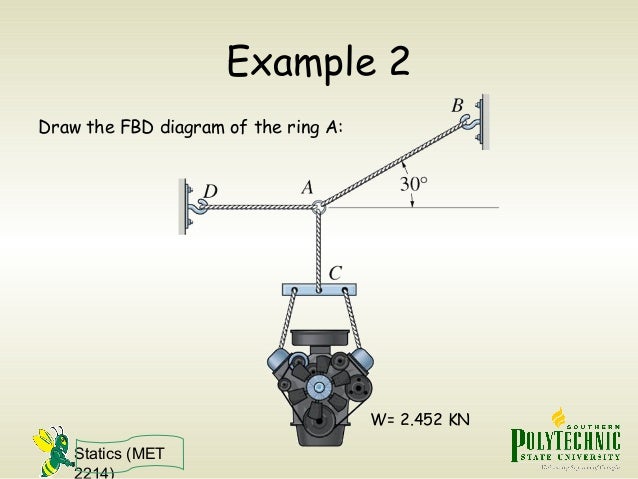
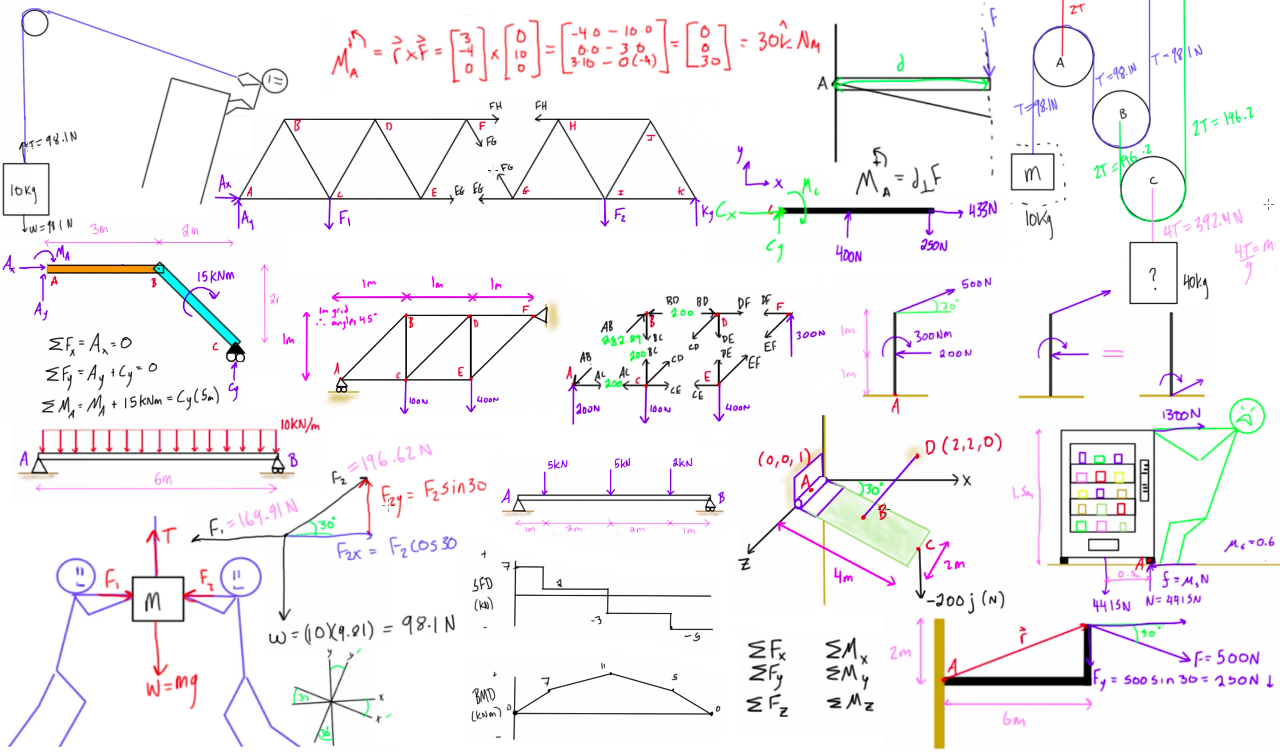

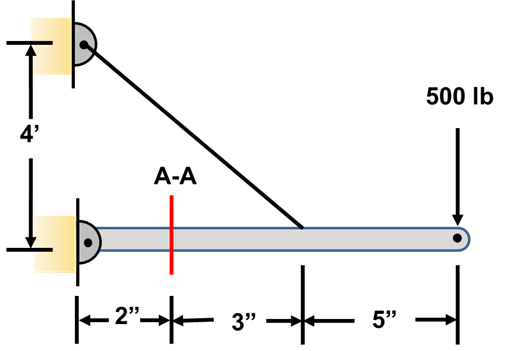
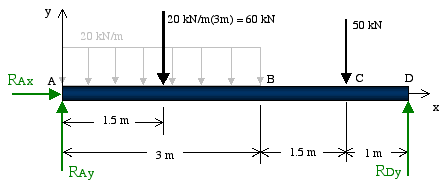
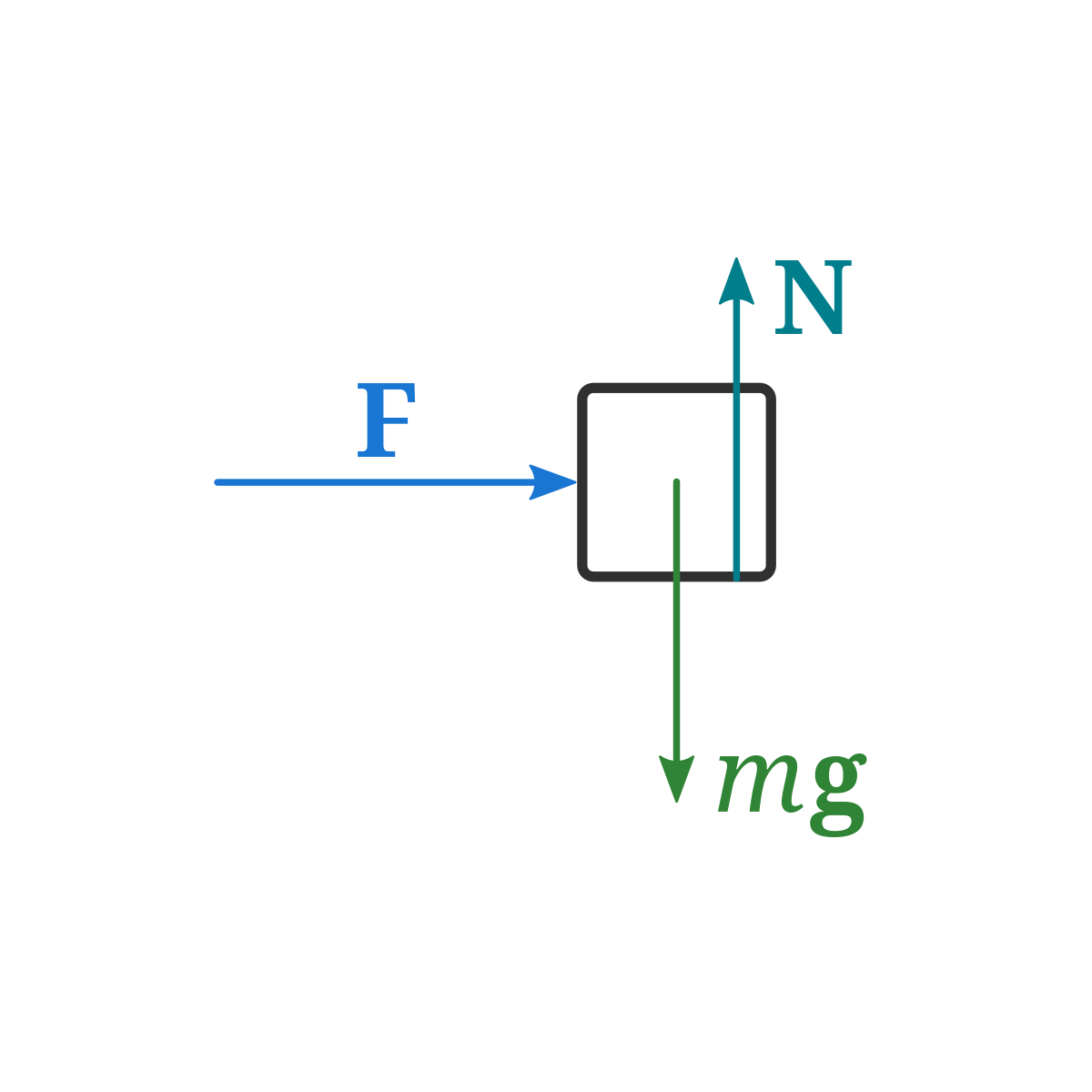


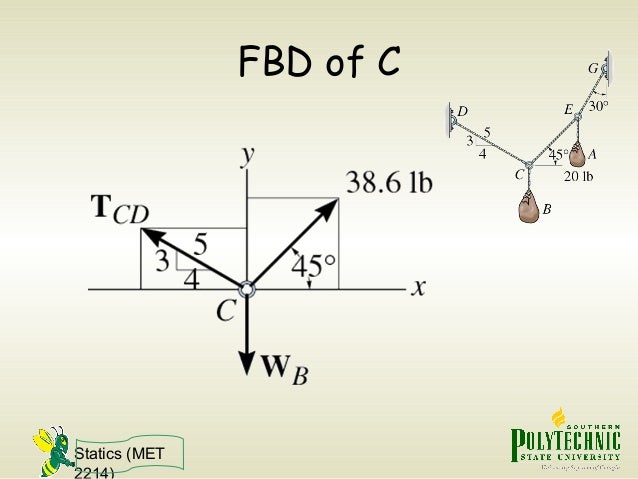

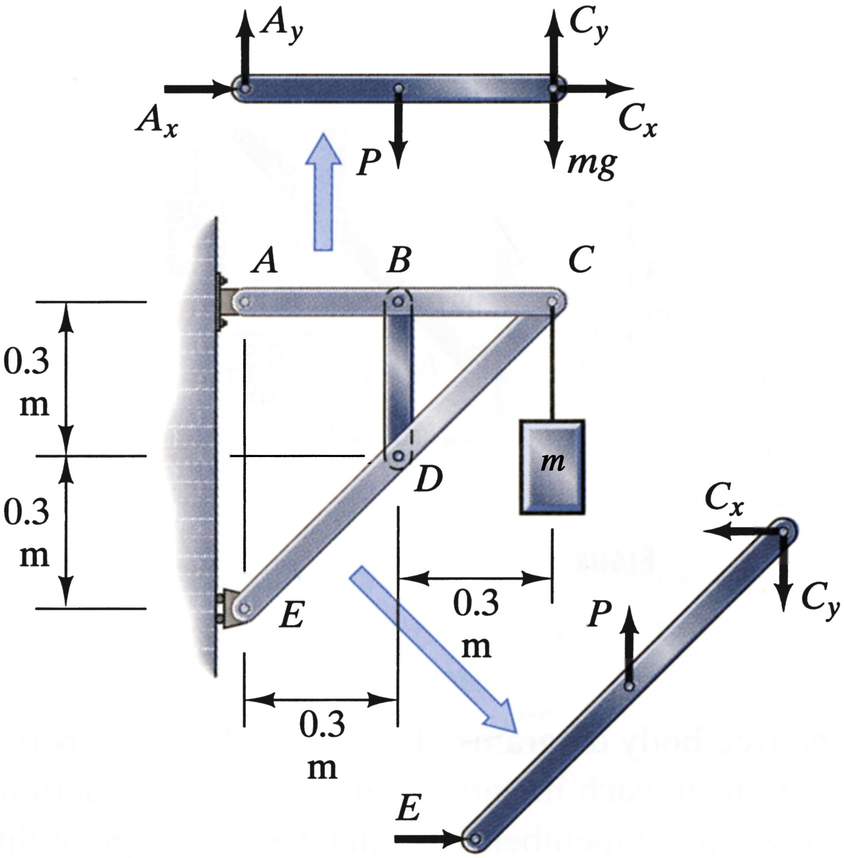
0 Response to "40 statics free body diagram examples"
Post a Comment